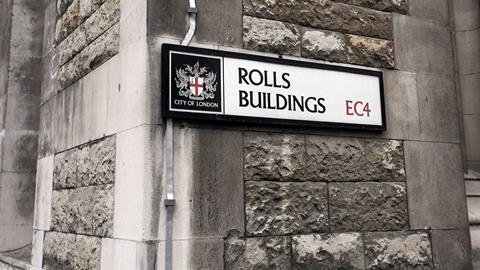Mining giant Eurasian Natural Resources Corporation began the second leg of a long legal fight for alleged losses against international firm Dechert this week. ENRC is seeking millions in damages.
ENRC claims losses totalling some £21m would not have been incurred were it not for Dechert’s former head of white-collar crime Neil Gerrard’s ‘breach of duty induced by the Serious Fraud Office’. ENRC argues that it should be compensated for fees and costs incurred for ‘unnecessary work’ carried out in consequence.
The hearing, which started on Monday, will see Mr Justice Waksman determine the damages, if any, payable to ENRC as a result of the wrongdoing found at last year’s trial.
Nathan Pillow KC, for ENRC, said the wrongdoing created a ‘synergy where one amplifies the other which in turn amplifies the other’.
The eight-day hearing in the Rolls Building follows the trial last spring, which led to the High Court allowing part of ENRC’s claims against Dechert and Gerrard in relation to the SFO’s ongoing investigation into allegations of bribery and corruption. In the May 2022 judgment, Waksman said that the inducement claim against the SFO had been made out (subject to causation and loss) in respect of 15 disputed contacts, but the misfeasance claim was not made out.
In the first trial judgment, Waksman found Gerrard had leaked ENRC’s confidential information to the press and SFO in order to expand his investigation into bribery and corruption allegations.
In a written summary of his findings, Waksman said he found Gerrard was the instigator of three leaks to the press which led to three media reports about his investigation into allegations against ENRC. Gerrard also ‘engaged with [former SFO director Richard] Alderman without authority’ prior to the publication of a ‘highly damaging’ article in The Times, the judge said, before Alderman ‘tipped Mr Gerrard off’ about a forthcoming letter from the SFO to ENRC.
Pillow, speaking on Monday, added: ‘There is this interaction between all of the breaches all of the time… the joint wrongdoing allowed Mr Gerard to get away with what he was doing.’
He told the court that Gerrard’s meetings with the SFO ‘must have contributed significantly for the SFO’s jaundiced or more jaundiced view of the ENRC’.
Pillow added: ‘We would go as far as to say with a relationship like this between your solicitor and the prosecutor who wants engagement with you that some loss will be caused by this relationship. It is inevitable.’
The SFO’s ‘primary case…is that Mr Gerrard would have made the same damaging disclosures to the SFO even if the SFO did not induce him to do so. Their primary case is, had they not induced the breaches, they would have happened anyway,’ Pillow said.
The hearing continues.



























